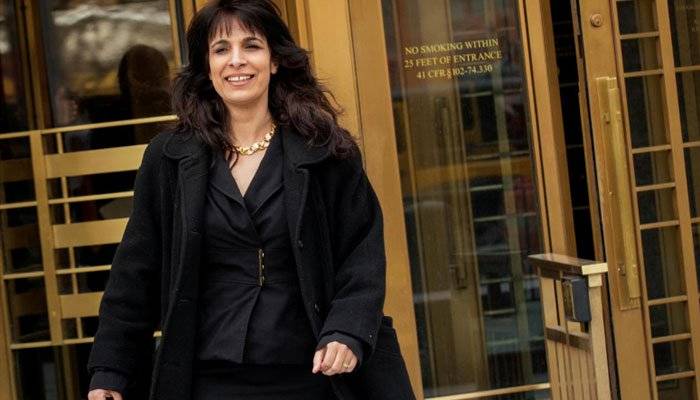Israel spy agency Mossad role in influencing US litigation revealed
Shares

JERUSALEM: An Israeli lawyer has shed light in a new book on the role the Mossad intelligence agency has played in US litigation she pursues against the international financing of Israel’s enemies.
Nitsana Darshan-Leitner, an Orthodox Jewish mother of six, heads the not-for-profit Shurat HaDin-Israel Law Center, which has named Palestinian authorities, Iran, Lebanon’s Hezbollah and North Korea as defendants in lawsuits it has brought.
Many of the cases were heard in US courtrooms, either because victims held American citizenship, or to target suspected militant funds held in banks in the United States.
Titled “Harpoon” after the codename of the Mossad finance-tracking unit Darshan-Leitner worked with, the book lays out how Israel targets foes’ bank accounts as well as arsenals.
In the closest that the secretive Mossad can come to a public endorsement, its former director provided praise for the book on its cover.
Darshan-Leitner, who mostly is engaged by private citizens, said that after her law center began suing Palestinians over attacks during a revolt that they launched in 2000, she was invited to Mossad headquarters for a consultation.
“I explained to them what we do, how and where lawsuits are filed, what evidence and jurisdiction is required, the general rules,” she told Reuters. “Their response was: What do we have to do to file more lawsuits? What do you need?”
That, Darshan-Leitner said, evolved into regular briefings, held in quiet cafes, where she would get tip-offs about suspect finances to focus on during the US courts’ discovery hearings.
Her Harpoon interlocutors, she said, have never given her documents that might betray the sources of their information: “They recited all the data from memory. It was pretty amazing.”
At times, the materials were turned into formal affidavits, filed in the name of Israel’s government, said Darshan-Leitner, adding that her role in Harpoon was as an unpaid volunteer.
Among cases to which she credits the cooperation are a $655 million judgment in New York against Palestinian authorities in 2015 and the disbanding of a planned 2011 activist flotilla to Gaza, after insurers were warned that they could be criminally liable for the bid to challenge Israel’s blockade.
The former verdict was voided, in a decision now being appealed to the US Supreme Court, and the latter had no clear financial gain so no payout was sought.
Darshan-Leitner said that around 10 percent of $2 billion worth of US judgments in her favor have been paid.
That suggests that Israel also sees the litigation as a way to score points against its adversaries in the court of public opinion. “The struggle itself is very important, as it gives the victims a sense of vindication and puts pressure on the countries (being sued),” Darshan-Leitner said.
“Harpoon” was submitted, in accordance with Israeli law, to military censors who, Darshan-Leitner said, cut a fifth of the text to suppress some details about intelligence methods and personnel.
